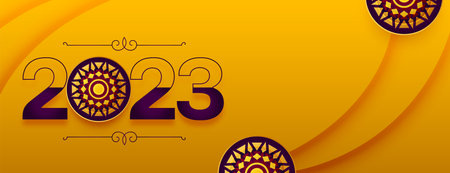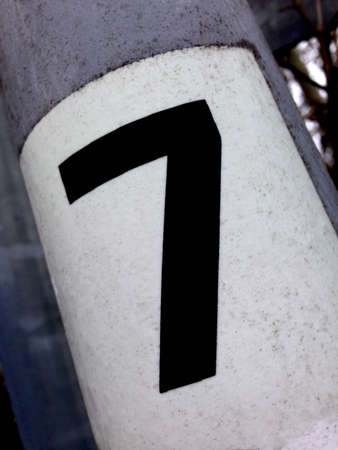Introduction to Numerology in the British Context
In Britain, numerology has long occupied a curious space within the broader landscape of esoteric traditions and alternative spiritual practices. While perhaps not as mainstream as astrology or tarot, numerology steadily attracts interest from those keen to explore the symbolic and energetic significance of numbers. Historically, its roots can be traced back to both Eastern and Western philosophies, but it’s in the UK’s uniquely pragmatic yet open-minded cultural climate that numerology finds a distinct expression. From local bookshops offering numerological charts to lively debates in spiritual circles about its validity, numerology’s role here is both reflective and exploratory. As we set the stage for comparing Chaldean and Pythagorean systems, it’s worth noting that British perspectives often blend scepticism with curiosity—eager to understand what each tradition offers without losing sight of good old-fashioned critical thinking. This approach shapes how numerology is received, discussed, and practiced across the UK today.
2. Historical Origins: Chaldean vs Pythagorean Systems
Delving into the roots of numerology, it is crucial to appreciate the contrasting cultural backdrops that shaped the Chaldean and Pythagorean systems. The Chaldean method traces its lineage to ancient Mesopotamia—present-day Iraq—where priest-astronomers interpreted numbers as cosmic forces influencing human destiny. This system thrived in a milieu where mysticism and mathematics were deeply entwined, reflecting a worldview steeped in mystery and spiritual symbolism.
On the other hand, the Pythagorean system finds its genesis in ancient Greece, specifically with the philosopher Pythagoras in the 6th century BCE. Unlike the secretive and mystical approach of the Chaldeans, Pythagorean numerology developed within an intellectual climate that prized logic, geometry, and philosophical inquiry. Numbers here were not only mystical but also rational entities governing the harmony of the universe—a notion that resonated strongly with subsequent Western thought, including British traditions of rationalism and scientific curiosity.
A Comparative Glance at Historical Contexts
| System | Cultural Origin | Era | Main Characteristics |
|---|---|---|---|
| Chaldean Numerology | Mesopotamia (Babylon) | c. 4000–1000 BCE | Mystical, esoteric, rooted in astrology and spiritual symbolism |
| Pythagorean Numerology | Ancient Greece | c. 6th century BCE onwards | Philosophical, mathematical, focused on logic and universal harmony |
A British Take on Ancient Traditions
From a distinctly British perspective, these origins evoke familiar themes found throughout our own history: fascination with ancient wisdom (as seen in our reverence for Stonehenge or Druidic lore) and a keen pursuit of reasoned knowledge epitomised by figures like Isaac Newton. Thus, when considering numerology’s historic roots through a British lens, one can appreciate both the allure of enigmatic Eastern traditions and the enduring legacy of Hellenistic rationality—each echoing through our cultural consciousness today.

3. Numerical Assignments and Methodologies
When delving into the heart of numerology, one finds that the way numbers are assigned to letters is far from arbitrary—its a defining feature that sets the Chaldean and Pythagorean systems apart. From a British standpoint, where precision and tradition often go hand in hand, these differences become even more intriguing. The Chaldean method, with roots tracing back to ancient Babylon, attributes numbers 1 through 8 to letters based on vibrational patterns and phonetics rather than strict alphabetical order. This means that not every letter gets a corresponding number in a linear fashion; instead, the assignment reflects what was believed to be the intrinsic energy of each sound—a concept that resonates with those interested in linguistic heritage and oral tradition. Conversely, the Pythagorean approach, shaped by Greek philosophical rationalism, adopts a much more systematic process. Here, the English alphabet (A-Z) is sequentially matched with numbers 1 through 9 in repeating cycles, creating a sense of mathematical orderliness. For example, A=1, B=2, …, I=9, then J=1, K=2, and so forth. This method appeals greatly to those of us on this side of the pond who appreciate logical frameworks and structured thinking. When it comes to calculation methodologies, Chaldean numerology usually omits the number 9 due to its sacred status, focusing solely on numbers 1-8 for both names and words. Calculations are performed letter by letter, placing emphasis on how a name feels when spoken aloud—a nuance not lost on those familiar with British dialects and their subtle inflections. In contrast, Pythagorean numerology involves adding together all numerical values until a single digit (or master number) is reached. Its a process thats straightforward enough for anyone acquainted with basic arithmetic—something taught universally across UK schools—making it accessible and easy to adopt. Ultimately, while both systems aim to reveal hidden meanings within names and words, their distinct approaches reflect broader cultural attitudes: Chaldeans mystical sensitivity versus Pythagoreans logical clarity. For British practitioners or enthusiasts, understanding these nuanced methodologies provides richer insight into which system might resonate more personally or philosophically.
4. Interpretative Styles and Practical Uses
When it comes to numerology, the British approach is often both pragmatic and culturally attuned. Let’s delve into how Chaldean and Pythagorean numerology are interpreted and utilised across the UK, from the quirky corners of village life to the cosmopolitan pulse of London.
Everyday Applications in Britain
Brits may be more reserved than their American counterparts, but numerology finds its way into daily life, especially when choosing baby names, business ventures, or even house numbers. The difference in interpretative style between Chaldean and Pythagorean systems can influence these choices in subtle yet significant ways.
| Aspect | Chaldean Numerology | Pythagorean Numerology | British Usage & Cultural Nuances |
|---|---|---|---|
| Name Analysis | Focuses on current, everyday name (commonly used form) | Analyses full birth name as per official records | Brits often blend both approaches, considering nicknames alongside formal names for a balanced view |
| Numerical Focus | Numbers 1–8; 9 is generally omitted unless derived naturally | Numbers 1–9 are all included in calculations | Preference for simplicity may sway some towards Chaldean for quick insights; others value the completeness of Pythagorean for genealogy or historical research |
| Cultural Reference Points | Tends toward mystical or spiritual significance rooted in ancient traditions | Emphasises rational patterns and psychological interpretations | The British love of folklore meshes well with Chaldean mysticism, while Pythagorean logic appeals to those who appreciate order—think pub quizzes and crossword puzzles! |
| Practical Choices | Sought after for personal guidance (e.g., career moves, relationships) | Used for self-development and understanding life paths | Brits might consult both systems before major decisions—reflecting a “belt and braces” mentality that values thoroughness over haste |
Interpretation: A British Blend of Tradition and Modernity
The British flair for merging tradition with modern sensibilities shines through in numerological practice. While some may gravitate towards the arcane allure of Chaldean readings—perhaps at a summer solstice festival in Glastonbury—others embrace the systematic clarity of Pythagorean analysis, perfect for those orderly souls who relish a good spreadsheet. More often than not, people weave together both methods, drawing on whichever resonates most with their personal story or current dilemma.
Cultural Resonance: From Shakespeare to the High Street
Naming conventions offer an excellent example: whether inspired by literary greats or family heritage, Brits frequently explore both the mystical undertones of Chaldean numerology and the logical structure of Pythagorean charts. It’s not uncommon to spot numerological references popping up in everything from local theatre productions to high-street branding strategies.
A Personal Touch: Making Numerology Work for You
If you’re looking to tap into numerology here in the UK, consider blending both systems—much like making a proper cup of tea: a bit of tradition stirred with modern taste. The result? Insights as uniquely British as a rainy day at Stonehenge.
5. Cultural Reception and Popularity in the UK
When considering which numerology system—Chaldean or Pythagorean—resonates more with British audiences, it’s crucial to examine local attitudes towards mysticism, tradition, and modern self-discovery. In Britain, Pythagorean numerology tends to enjoy broader recognition. This is likely due to its straightforward approach and strong ties to Western philosophical traditions, making it more accessible to those seeking personal insight or a touch of esoteric fun. The system’s reliance on the Latin alphabet and simple calculations means it meshes seamlessly with English language use, lowering barriers for newcomers and supporting its integration into mainstream culture.
Conversely, Chaldean numerology, with its roots in ancient Babylon and its intricate assignment of values based on sound vibration rather than alphabetical order, holds a more niche appeal. While some British spiritual circles value its mystical aura and perceived authenticity, the complexity can be off-putting for those looking for quick answers or casual guidance. That said, there has been a slow-growing curiosity about Chaldean methods among seekers of “hidden knowledge” or those interested in alternative spiritual practices beyond the familiar Western canon.
In terms of influence on local beliefs or practices, neither system has deeply infiltrated mainstream British life in the way that astrology or tarot have. However, Pythagorean numerology often surfaces in popular culture, from magazine horoscopes to personality quizzes and even pub conversations about lucky numbers. This accessibility reinforces its popularity, especially among younger generations exploring new ways of understanding themselves outside traditional religious frameworks.
Ultimately, while both systems offer unique perspectives, it’s the Pythagorean approach that aligns more closely with the practical yet open-minded spirit often associated with British culture. Its blend of mathematical clarity and personal exploration fits well with a society known for balancing rational thought with an enduring fascination for the mysterious.
6. Strengths and Limitations of Each System
When weighing up the merits of Chaldean and Pythagorean numerology, a balanced British perspective is often shaped by our characteristic pragmatism and healthy scepticism. Both systems claim ancient roots and offer insights into personality and destiny, yet neither escapes scrutiny in terms of their practical value and credibility.
Chaldean Numerology: Depth Versus Accessibility
The Chaldean system is frequently praised for its perceived depth. Its focus on the vibrations of individual letters—rather than strict alphabetical order—appeals to those who favour subtlety and tradition. However, this complexity can also be its undoing for many Brits; the system’s esoteric nature means it is less accessible and more open to subjective interpretation. As a result, some view it with a degree of suspicion, questioning whether deeper necessarily means better or just harder to verify.
Pythagorean Numerology: Simplicity and Popularity
By contrast, the Pythagorean method wins points for its straightforwardness. Assigning values based on the modern alphabet makes it easy to use and understand—a trait much appreciated in a culture that values plain speaking. It has gained broad popularity in Western circles, including the UK, largely because of this accessibility. Yet critics argue that its simplicity may come at the expense of nuance, leading some to dismiss it as overly reductive or even superficial.
A British Take: Pragmatic Acceptance with a Pinch of Salt
In true British fashion, there is an undercurrent of “take it or leave it” when it comes to both systems. While some embrace numerology as a tool for self-reflection or entertainment, others approach it with classic British reserve—enjoying the symbolism but keeping one eyebrow raised. Ultimately, both Chaldean and Pythagorean numerology offer intriguing frameworks, but for most in Britain, their real strength lies in sparking curiosity and conversation rather than delivering definitive answers.
7. Conclusion: Making an Informed Choice
As we arrive at the culmination of our exploration into the key differences between Chaldean and Pythagorean numerology, it’s clear that each system offers its own unique lens through which to interpret life’s mysteries. For British readers seeking clarity in their numerological journey, the choice between these two traditions is not simply a matter of historical allegiance but one of personal resonance and cultural relevance. While Chaldean numerology carries an air of ancient mystique and subtle complexity, often appealing to those with a keen interest in esoteric heritage, Pythagorean numerology feels more accessible—its straightforward structure aligning well with the British appreciation for order and pragmatism.
When making your decision, consider what you seek from numerology: are you drawn to tradition, or do you favour methods that reflect contemporary sensibilities? Perhaps you find value in both, merging insights from East and West as many modern Britons do, embracing diversity in spiritual practice. Ultimately, the right path is the one that resonates with your intuition and worldview—one that enhances your self-understanding while honouring both personal beliefs and the broader tapestry of British cultural identity. Whichever system you choose, approach it with curiosity, discernment, and a willingness to adapt; after all, the true power of numerology lies not just in numbers themselves but in their capacity to inspire reflection and growth within our ever-evolving society.

